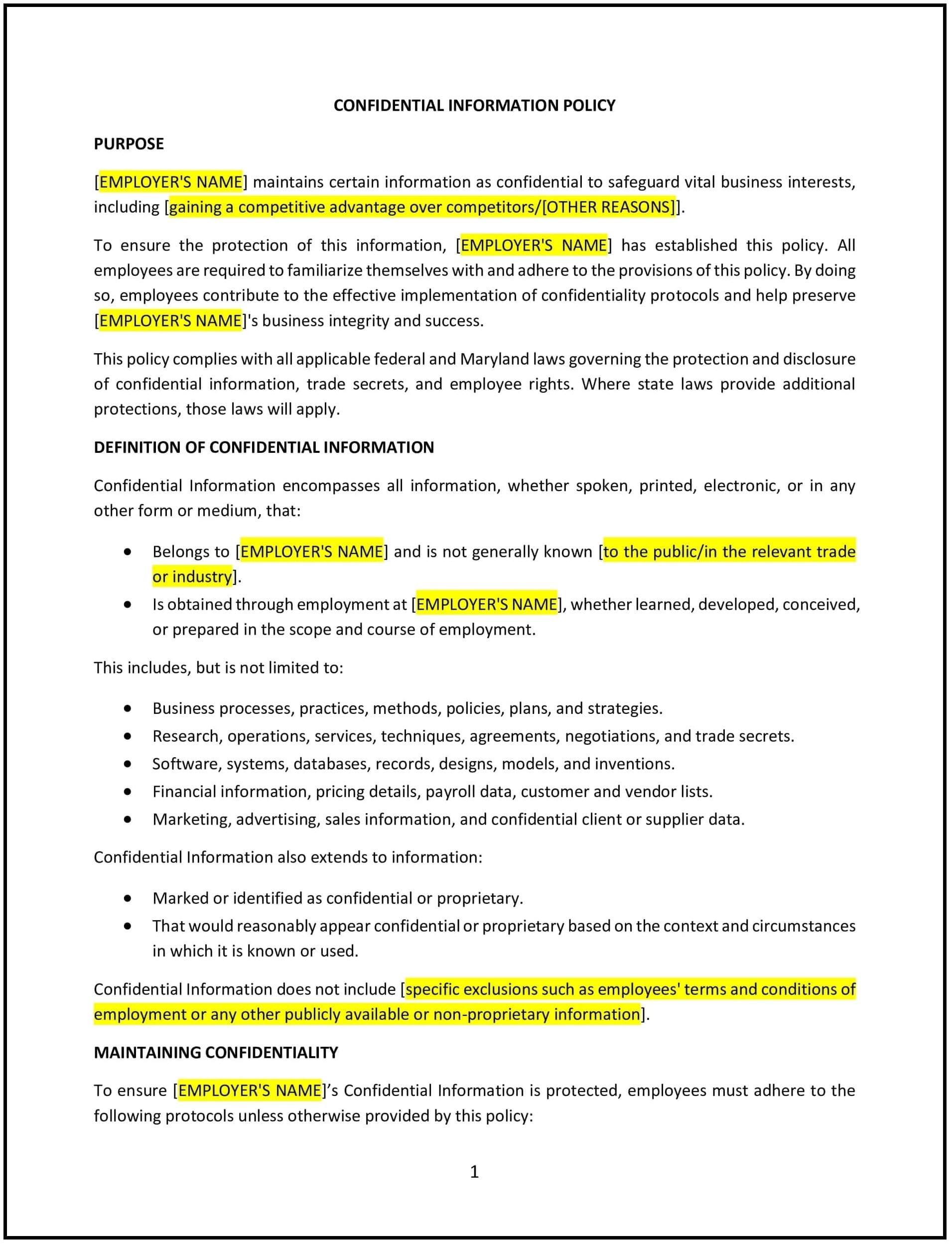Confidential information policy (Maryland): Free template
Got contracts to review? While you're here for policies, let Cobrief make contract review effortless—start your free review now.

Customize this template for free
Confidential information policy (Maryland)
This confidential information policy is designed to help Maryland businesses protect sensitive data, including trade secrets, customer information, financial records, and proprietary business materials. It provides clear guidelines for handling, sharing, and storing confidential information to minimize the risk of unauthorized disclosure or misuse.
By implementing this policy, Maryland businesses can safeguard their assets, foster trust, and maintain compliance with state-specific data protection requirements.
How to use this confidential information policy (Maryland)
- Define confidential information: Clearly identify what constitutes confidential information, including examples such as client lists, intellectual property, and employee records.
- Provide handling instructions: Outline procedures for securely storing, accessing, and transferring confidential data, including the use of encryption or secure systems.
- Set employee responsibilities: Emphasize employees’ roles in protecting sensitive information and avoiding unauthorized sharing.
- Address third-party access: Include requirements for vendors, contractors, and partners who may need access to confidential data, such as signed confidentiality agreements.
- Specify non-disclosure agreements (NDAs): Require employees and contractors to sign NDAs as a condition for accessing confidential information.
- Establish reporting protocols: Provide steps for reporting suspected breaches or unauthorized access to confidential data.
- Reflect Maryland-specific considerations: Highlight relevant Maryland laws, such as those pertaining to data breaches or privacy protections, that impact the handling of confidential information.
Benefits of using this confidential information policy (Maryland)
Implementing this policy offers Maryland businesses key benefits:
- Safeguards sensitive data: Protects trade secrets, proprietary materials, and personal information from unauthorized access.
- Reduces risk: Minimizes exposure to legal, financial, or reputational harm caused by data breaches.
- Enhances accountability: Establishes clear roles and responsibilities for employees handling sensitive information.
- Builds trust: Reassures clients, partners, and employees that the business prioritizes data protection.
- Promotes structured processes: Provides a consistent framework for managing confidential information effectively.
Tips for using this confidential information policy (Maryland)
- Educate employees: Offer regular training on identifying and handling confidential information appropriately.
- Implement secure systems: Use secure digital tools, encryption, and access controls to protect sensitive data.
- Conduct audits: Periodically review how confidential information is handled and stored to identify potential vulnerabilities.
- Review agreements: Ensure all NDAs are up to date and align with Maryland laws and business needs.
- Update regularly: Reflect changes in Maryland data protection laws and industry standards in the policy.